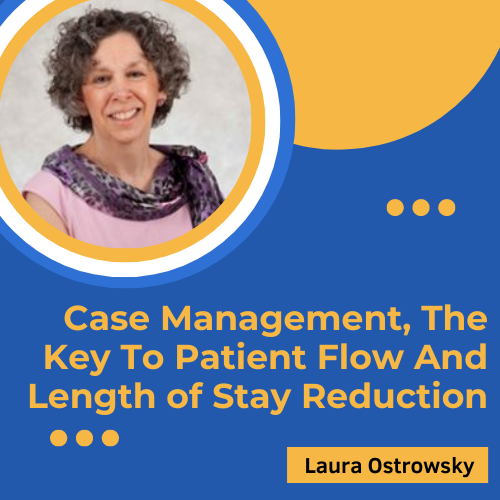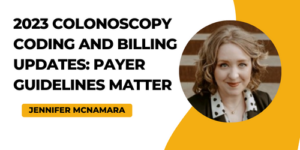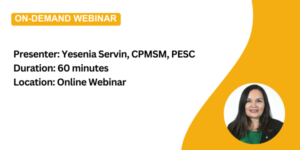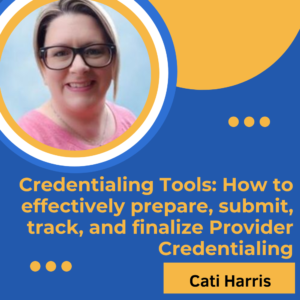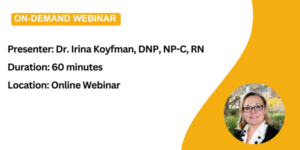Conference Material (Password Required)
Since the mid-1980s when hospital reimbursement switched from per diem to case-based payments, the need to decrease length of stay became a financial imperative. Couple that with changes in care delivery, the proliferation of sites and levels of care and the move from utilization review to utilization management and the focus became cost-efficient care delivery leading to standardization of services and the adoption of business analysis like time and motion studies AKA patient flow.
This webinar will begin with a review of the history of reimbursement and policy changes as they affect current care delivery. There will be a short review of technological changes that have helped not only to shorten hospital stays but to eliminate them as care has shifted from inpatient to ambulatory.
Case management’s role in these changes will be discussed. Initiatives to decrease LOS and increase efficiency will include:
- The use of avoidable days; collection, trending and analysis to identify opportunities to improve systems, care delivery and decrease length of stay (LOS).
- The principles of utilization management will be reviewed with emphasis on the monitoring and conserving of scarce healthcare resources and the constraints they pose.
- The importance of working in teams and coordination of care will be introduced along with a team approach to standardized workflows by service, diagnosis and procedure.
- Patient flow initiatives in health care will be discussed with emphasis on multidisciplinary inclusion and the approach from both the business and clinical perspectives.
- A comparison of proactive and reactive approaches will be presented
Learning Objective:
- Participants will understand the significance of avoidable day identification in the length of stay reduction process.
- To be able to apply the 3 rights; right care, right place, right time to the timing of care and decisions regarding continued stay.
- To incorporate the team approach when developing comprehensive standards of care.
- Understand proactive approach to systems changes rather than reactive response
Areas Covered in the Session:
-
- Reimbursement changes and their effect on length of stay
- Identification of avoidable days codes and metrics
- Patient flow
- Care coordination and the team approach
- Standardized care planning
- Resource allocation/management
- Being proactive rather than just responding
- Using metrics to identify opportunities for improvement
Related Webinar
Suggested Attendees:
- Registered Nurses
- NPs
- MDs
- Social Workers
- Case Managers
- Patient Education professionals
- Patient Representatives
- Patient navigators
- Staff nurses and supervisors
- RN Case Managers
- Director of Case Management
- Directors and Vice Presidents of Nursing
- Directors of Patient Flow
- Director of Revenue Cycle
- Chief Financial Officers
- Chief Operations Officers
- Chief Medical Officer
- Hospitalists
- Director of Quality Management
- Nursing Home Directors
- Director of Home Care
- Director of Finance
- Physician Advisors
- Directors of Social Work
Presenter Biography:
Laura Ostrowsky RN, CCM MUP is the current president of the NYC chapter of CMSA and a Director on the national CMSA board. She is teaching a CCM prep course with the Case Management Institute, working with Athena Forum and writing and consulting on case management and related topics. Laura has published articles on Case Management in CMSA Today, Professional Case Management, Case in Point, The Patient Flow Journal and other periodicals. She regularly presents at national conferences including CMSA, the Patient Advocate Institute, NTOCC and others on topics ranging from case management, patient flow and payer-provider collaboration to advocacy, collaborative practice and case management’s role in the changing healthcare environment.
Laura is a past Director of Case Management at Memorial Sloan-Kettering Cancer Center (1999-2019) and the 2012 CMSA Case Manager of the Year. Her program was been nominated by Case in Point for excellence in Utilization Management, Discharge Planning and Transitions in Care and awarded the patient Advocate Award. She created a patient advocacy program to assist patients in obtaining access to specialty care despite network restrictions. The program has been featured in articles in Advance for Nursing, The Wall Street Journal, Case in Point, and Case Management Monthly.
Laura holds a master’s degree in Health Planning and Policy from Hunter College. She has been a CMSA member since 2005 and has served on the Board of Directors of the NYC Chapter since 2011, and CMSA National for 2 years from 2016-2018.
Laura has 40 years of health care experience, including time as a staff nurse, QA Coordinator, and Director of UR and QA, followed by directorships in CM at New York Presbyterian (NYP) and Memorial Sloan Kettering Cancer Center and providing educational presentations at part of the Genentech Speaker’s Bureau. She also spent 3 years in information services at the NYP Network overseeing the selection, acquisition and implementation of an integrated hospital information application for UR, QA, Credentialing and Risk Management at 5 network hospitals.
Snippet From Our Previous Session
TESTIMONIALS
“Jim Sheldon-Dean’s insights on privacy and security were very much helpful to our team, it was great to learn from an instructor like him. Appreciate!” –CHRISTINE JACOB MD, CDI SPECIALIST
“This program on HIPAA did a great job providing actionable concepts in a way that updated our team and me, I now know how I will implement the concepts because I already did it in their online seminar, it was easy to ask questions from the speaker at the end of my 60 minutes course.” –MELISSA PRESTON, HEALTH INFORMATION MANAGEMENT STAFF
“The workshop was very insightful and made absolute sense in terms of the regulations and their compliance. I am thankful for having the opportunity to attend.”–BARBARA CAPRIOTTY, REHABILITATION DIRECTOR
